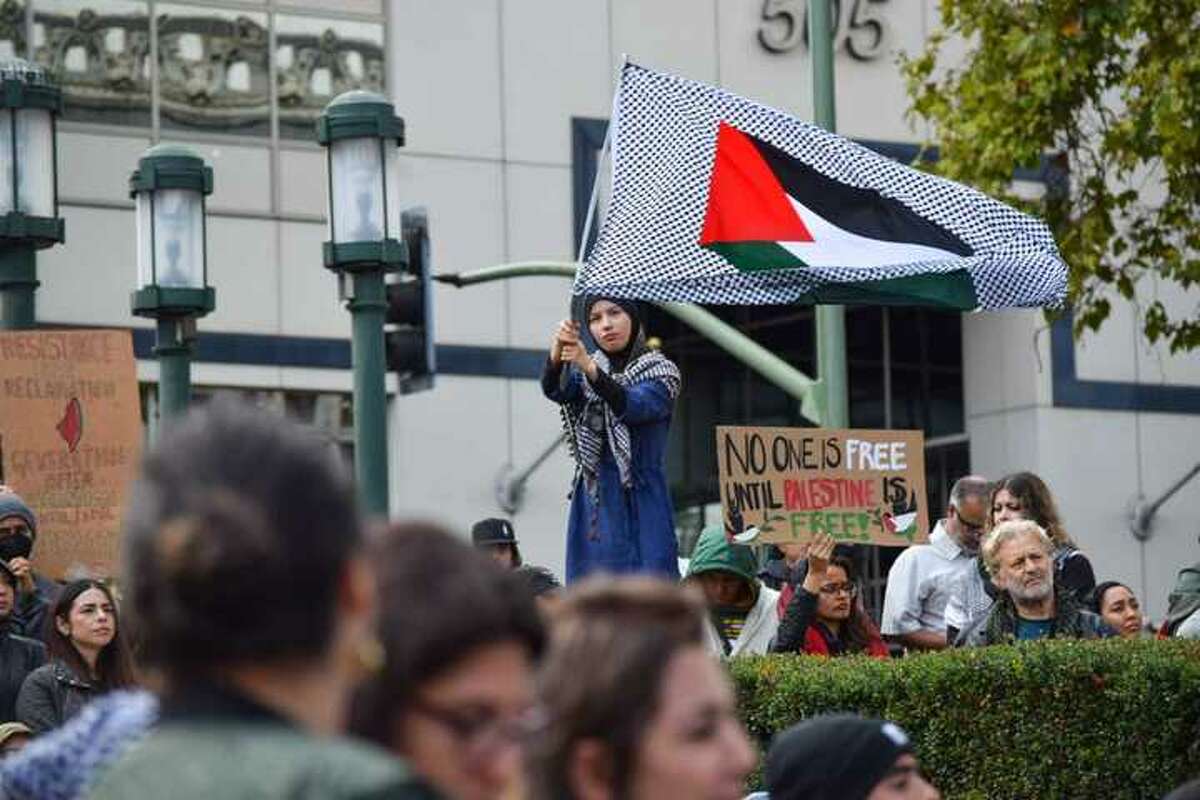In the shadows of imperialist machinations and capitalist interests, the working class’s awareness of the enduring impact of military occupation and settler colonialism in Palestine calls for a narrative that transcends the confines of a two-state solution. This perspective, grounded in anti-imperialist and anti-capitalist principles, sheds light on the harrowing realities faced by the Palestinian people and advocates for the uncompromising cry: Free Palestine from river to sea.
“The struggle is not merely against a military occupation; it is a battle against the very roots of imperialist hegemony and capitalist greed.”
Black Orchid Party
The echoes of imperialist promises and settler colonial ambitions have resounded through the history of Palestine. From the Balfour Declaration of 1917 to the present day, the working class recognizes the systemic exploitation, displacement, and violence inflicted upon the Palestinian people. The struggle is not merely against a military occupation; it is a battle against the very roots of imperialist hegemony and capitalist greed.
“Zionist deeds were more eloquent than their words. The Zionists wanted us out of Haifa and Palestine, and they succeeded in forcing us to leave, while making the world believe we left voluntarily.”
Leila Khaled, My People Shall Live (1971)
Leila Khaled, Palestinian refugee and author of My People Shall Live, encapsulates the spirit of resistance against imperialist forces. “Zionist deeds were more eloquent than their words. The Zionists wanted us out of Haifa and Palestine, and they succeeded in forcing us to leave, while making the world believe we left voluntarily.” Khaled’s word transcend time as this quote is from her 1971 publication exemplifying the enduring struggle against settler colonialism in Palestine.
A two state solution inadvertently acknowledges the occupation’s legitimacy and obscures the reality of ongoing genocide.
Black Orchid Party
The call for a two-state solution, often touted as a path to peace, falls short in the eyes of the anti-imperialist working class. Noam Chomsky, renowned scholar and activist, rejects the idea; asserting that such an approach merely acknowledges the occupation perpetuated by genocide and hegemony. A two state solution inadvertently acknowledges the occupation’s legitimacy and obscures the reality of ongoing genocide. To settle for a compromise that perpetuates the hegemonic power dynamics would be a betrayal of the Palestinian people’s right to self-determination and a perpetuation of the injustice they endure.
The rallying cry, “Free Palestine from river to sea,” emerges not as a call for dominance or exclusion but as a demand for a just and liberated society. It is a rejection of imposed borders and a declaration that every inch of Palestinian land deserves freedom from the shackles of occupation. To demand a free Palestine is not anti-semetic. Renowned Jewish philosopher and activist, Hannah Arendt warned against the dangers of unchecked power, advocating for justice and human rights. Rabbi Brant Rosen, a vocal advocate for Palestinian rights, emphasizes the importance of dismantling oppressive systems that perpetuate suffering. The working class understands that true liberation necessitates the dismantling of the systems that enable imperialism and capitalism to thrive.
By standing against capitalist interests and embracing true liberation, the working class becomes a force that transcends geographical boundaries.
Black Orchid Party
The struggle in Palestine is not isolated; it is a manifestation of the broader global struggle against oppressive structures. The intercommunalist perspective emphasizes solidarity across borders, recognizing that the working class’s fight against imperialist oppression is interconnected. By standing against capitalist interests and embracing true liberation, the working class becomes a force that transcends geographical boundaries.
The alliance between the United States and Israel epitomizes the marriage of imperialist interests. The flow of economic and military aid from the U.S. not only bolsters Israeli oppression but also highlights the complicity of the capitalist system in perpetuating global injustice. The working class sees through the facade of diplomacy, understanding that these exchanges serve the interests of the capitalist class, not the cause of justice.
The working class, united in its anti-imperialist and anti-capitalist stance, stands in solidarity with the Palestinian people, echoing the cry for justice and freedom across every inch of their homeland.
Black Orchid Party
Black Orchids are aware of the enduring impact of military occupation and settler colonialism, the call for Free Palestine from river to sea is a call for true liberation. It is a rejection of compromise and a commitment to dismantling the oppressive structures that sustain imperialist and capitalist interests. The working class, united in its anti-imperialist and anti-capitalist stance, stands in solidarity with the Palestinian people, echoing the cry for justice and freedom across every inch of their homeland.

